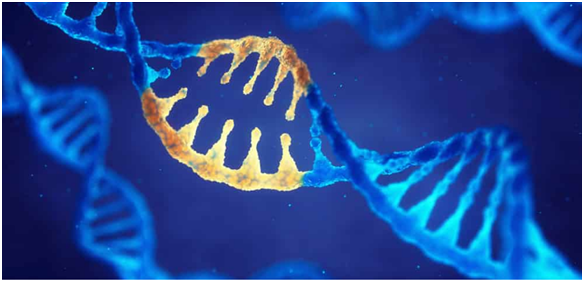Neurology and Neuro Disorders Conferences, organized by the Pencis group.
Thursday, 15 December 2022
Replay targets genetic brain disorders with new gene therapy company, Kaleibe
It is the third of Replay’s product companies to launch since the company’s formation in July and will leverage Replay’s high payload capacity herpes simplex virus (HSV) delivery vector, synHSV, to target genetic brain disorders.
Kaleibe’s co-founders include Richard Wade-Martins, whose research at the University of Oxford focuses on the molecular mechanisms underlying neurodegenerative diseases, and Howard J Federoff, former distinguished Professor of Neurology at University of California, Irvine, and formerly CEO at regenerative medicine company, Aspen Neuroscience, Inc. Joe Glorioso, the inventor of synHSV, is also a co-founder of Kaleibe.
The initial development programs will focus on genetic Parkinson’s disease (PD) and Friedreich’s ataxia (FRDA). These diseases have a high unmet medical need and known genetic causes. The target genes, 33kb and 135kb, respectively, far exceed the payload capacity of adeno-associated virus (AAV) vectors (5kb). Affecting more than 6 million people worldwide, PD is the most prevalent movement disorder and second most common neurodegenerative disorder globally, after Alzheimer’s disease.
Limited treatment options
It is estimated that approximately 15% of cases are inherited, with a loss of functional genes that can be targeted by genomic medicines. FRDA is a genetic, progressive, neurodegenerative movement disorder affecting around 1 in every 50,000 individuals, with a typical age of onset between 10 and 15 years. It leads to impaired muscle coordination (ataxia) that progresses over time. Treatment options are limited and involve managing the symptoms and complications of the disorder.
The launch of Kaleibe follows the launches of product companies Eudora and Telaria focused, respectively, on diseases of the eye and skin. Replay’s distinctive corporate structure separates technology development from product development within disease therapeutic area-focused product companies.
Adrian Woolfson, executive chairman, president and co-founder of Replay, said: “HSV’s natural neurotropism allows the virus to establish a latent infection in neurones and enables robust transgene expression across multiple brain regions. It was therefore rational for us to apply our proprietary delivery platform, synHSV, to target genetic disorders of the brain, where we believe HSV offers the promise of gene delivery that is safer and more durable than AAV-based approaches. The high payload capacity of HSV, furthermore, allows for the expression of genomic genes, thereby deploying natural regulatory sequences and capturing alterative splice forms.”
Novel treatments
Lachlan MacKinnon, CEO and co-founder of Replay, said: “The launch of Replay’s third product company highlights the strength and broad applicability of our synHSV technology, as well as our ability to leverage its payload capacity by delivering cassettes of up to 150kb in length. With Kaleibe, we are fortunate in having leading neuroscience and clinical neuroscience and neurology experts as co-founders, leveraging synHSV to bring novel treatments to patients with debilitating brain disorders.”
Wade-Martins said: “Replay’s mission to write and deliver big DNA resonates with my own research interest in this area. Genetic Parkinson’s disease and Friedreich’s ataxia are diseases characterized by mutations in particularly sizeable genes, making them especially difficult targets for AAV-based gene therapies. With the potential to deliver up to 30x the payload of AAV, Replay’s synHSV platform facilitates the delivery of large genes – so called ‘big DNA’ – with the promise of a differentiated and compelling therapeutic option for these, to date, intractable disorders.”
Significant impact
Federoff said: “Kaleibe aims to illuminate genetic brain disorders that have a high unmet medical need and that are associated with a significant detrimental impact on the quality of life of patients. Replay’s differentiated approach brings together the necessary elements to position the company for success. I look forward to working with the team to leverage Replay’s synHSV technology platform to develop novel treatments addressing genetic mechanisms beyond the reach of other technologies that have the potential to have a significant and durable clinical impact.”
Glorioso added: “Our next-generation HSV delivery platform has several distinct advantages over, and has the potential to be disruptive to existing gene delivery platforms. The defined genetic causes of the neurological disorders under investigation at Kaleibe provide us with the opportunity to introduce profound and long overdue technological innovation into the treatment landscape.”
Visit my site: https://neurology-conferences.pencis.com/
About Conference:
International Conference on Neurology and Neuro Disorders
Neurology and Neuro Disorders Conferences, organized by the Pencis group.
Abstract Submission - https://x-i.me/neuabs11
Member Nomination - https://x-i.me/neurmem6
International Research Awards on Neurology and Neuro Disorders
Award Nomination - https://x-i.me/abinom2
Subscribe to:
Post Comments (Atom)

No comments:
Post a Comment